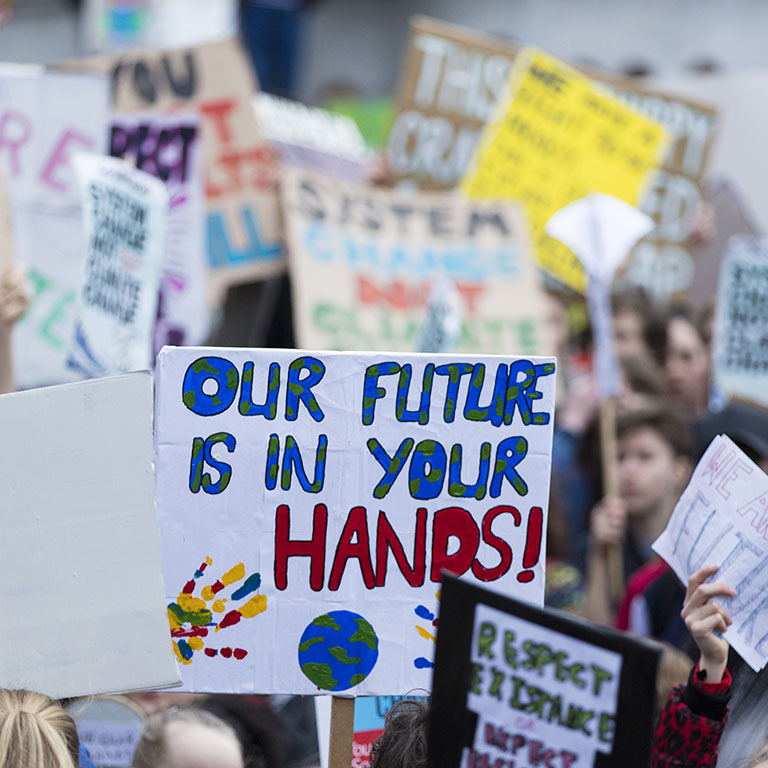
By Amy Barnes ,
Head of Energy & Power, Head of Climate & Sustainability Strategy, Marsh Risk
11/04/2021
Today’s sessions, based on youth and public empowerment, highlight the importance of educating and training the public on climate action. An empowered and engaged public will be a key driver for change, holding governments and businesses accountable to the promises they are making.
This was powerfully clear during the children and youth session, where the delegates from the Global Conference of Youth gave a rousing rally cry for action through their global youth statement, as well as from the thousands of young people marching in protest outside about the amount of progress made on climate action to date.
The public view on climate change has shifted dramatically over the past few years. Younger generations are more aware and concerned about sustainability. This shift in public opinion is impacting policy, particularly in developed countries, and the need for targets to be met with action.
Public opinion is not reserved solely for national leaders — the environmental, social, and governance (ESG) response of businesses is also under the keen public eye. Indeed, reputational damage is a growing concern for businesses. For instance, research carried out by Marsh demonstrated that businesses with resilient post-crisis behavior, such as responding quickly and communicating honestly and transparently with stakeholders and the public, often saw no damage to share price. This is indicative of the value of efficacy and public trust.
Another theme of the day has been the ocean and the important role of mangroves, salt marshes, and sea grass in carbon sequestration. Groups are exploring whether blue carbon credits could be used to fund conservation and restoration of these important carbon sinks.
Increasingly, focus is shifting to broader themes of nature. Therefore, as we consider the impact climate change risk has on directors and officers within businesses, we need to expand our risk lens to encompass nature more broadly.
All of this gives rise to growing reputational risks due to the increased risk of litigation against directors and officers when things go wrong. Tougher controls on emissions by national and international governments could lead to more claims and litigation. The impact on D&O liability will need to be considered as new climate change policies are developed to minimize this transitional risk.
This blog is part of the COP26 series.

Report,Featured insight
01/05/2026

Article,Featured insight
12/01/2025